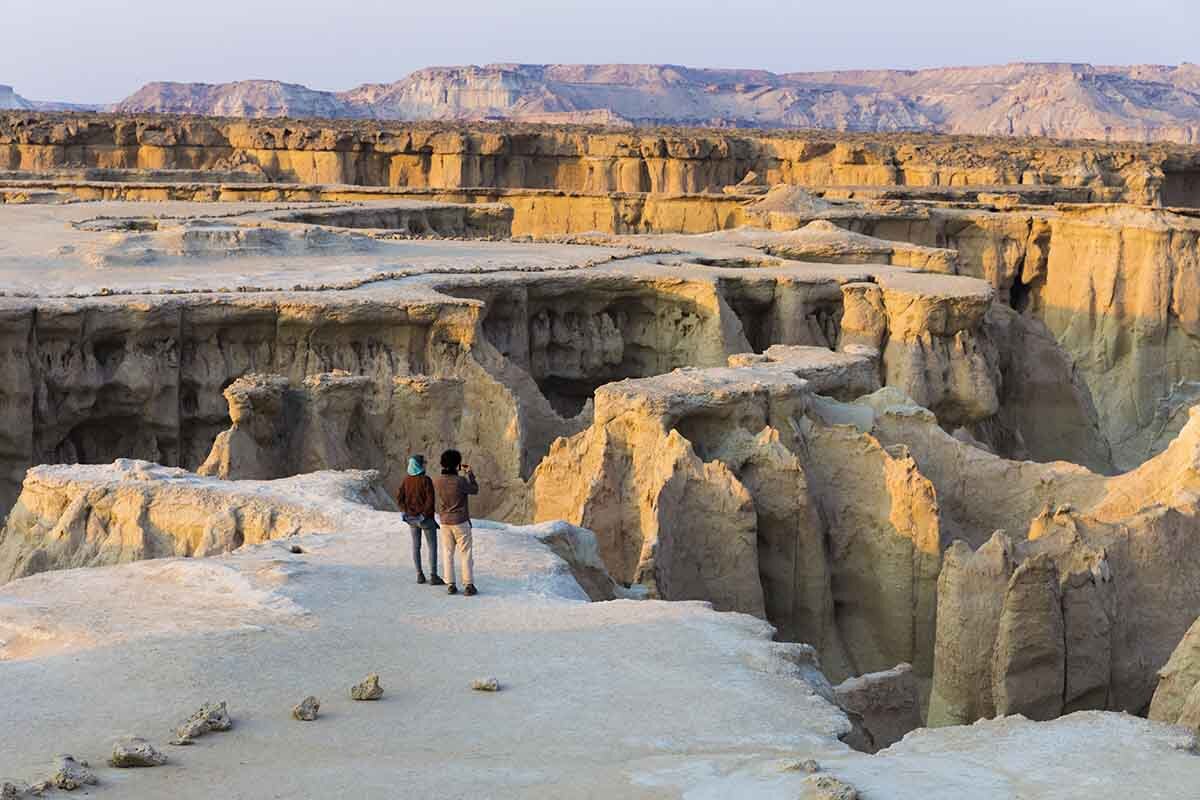TEHRAN - Qeshm, the largest island in the Persian Gulf, stands out as one of Iran’s most enchanting destinations.
Shaped like a dolphin, this island is rich in natural wonders, geological marvels, and a diverse array of wildlife. Its intriguing history reflects influences from Dutch, French, and Portuguese settlers, evident in the ruins and ramparts scattered across the landscape.
Situated in the Strait of Hormuz, off Iran’s coast, Qeshm boasts a vast expanse where traditional Bandari livelihoods thrive, revolving around trade, handicrafts, and Lenj-style fishing—a tradition dating back centuries.
Qeshm’s formation history, shaping its unique appearance, has earned it recognition as a UNESCO Global Geopark.
Here are five natural treasures awaiting exploration on this captivating island:
Hara Mangrove Forest
Embark on a day trip to the Hara Mangrove forests, immersing yourself in a fairy-tale realm of underwater trees, tranquil waters, and melodious birdcalls.
Herons, flamingos, and pelicans grace the landscape, alongside an assortment of reptiles and peculiar sea creatures. These mangroves serve as vital ecological nurseries for both birds and fish, accessible primarily via local shrimp fishing boats or limited tourist tugs.
Optimal viewing occurs during low tide, revealing the full majesty of the Hara trees emerging from the water.
Stars Valley
For avid backpackers, visiting the vast island, the picturesque Stars Valley beckons, showcasing remarkable rock formations sculpted by weather erosion over millions of years.
Red pointy cones, pillars, arcs, and bulkheads adorn the landscape, reminiscent of an otherworldly realm.
The valley’s appearance evolves with each heavy rainfall due to its weak structural composition, offering an ever-changing spectacle.
Namakdan Salt Cave
Discover the geological marvel of Namakdan Salt Cave, a dynamic creation shaped by rainfall-induced transformations.
Accessible to the public for the initial 100–200 meters, this living salt cave mesmerizes visitors with its colorful salt crystal tunnels. Torchlight exploration unveils a surreal landscape, inviting guests to witness nature’s intricate artwork firsthand. Adjacent beaches complement the cave’s allure, adding to the charm of any excursion.
Chahkuh Valley
Located in Qeshm’s northwestern region, Chahkuh Valley entices visitors with its serene ambiance and captivating rock formations.
Carved by heavy rain and tectonic movements, the ivory cliffs stand as a testament to nature’s artistic prowess. Strict conservation measures protect this geo-site, prohibiting any damage to its pristine cliffs. Ingeniously utilized by local communities, natural rock formations serve as wells, storing and cooling water for dry seasons. Nature’s ingenuity shines in this breathtaking valley.
Hengam Island
Despite its small size, Hengam Island offers boundless beauty and recreational opportunities. Silver beaches invite relaxation, while the pristine sea beckons swimmers and divers alike. Scuba enthusiasts flock to explore the coral reefs and shipwrecks dotting the coastline. Early mornings present the chance to witness playful dolphins, setting the tone for a day filled with wildlife encounters. Tropical birds, gazelles, and turtles call Hengam home, adding to its allure as a nature lover’s paradise.
Each of these natural treasures on Qeshm Island promises an unforgettable experience, blending natural beauty with cultural intrigue.


No comments:
Post a Comment